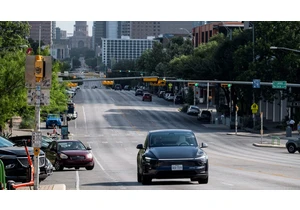Not all emojis are created equal.
The sparkle emoji or red heart emoji are staples of text conversations and social media captions. But how often are you using the baggage claim icon or the non-potable water symbol?
Recently, a new trend has emerged: mainstream emojis are being passed over in favor of more creative alternatives. The broken heart emoji? Tired. Predictable. The wilted rose emoji? Aesthetic. Unexpected.
The trend began earlier this year when a video from one TikTok user went viral. The caption read: “‘💔’ lowkey starting to become too mainstream / i might just start using ‘🥀’.” Others quickly joined in. “How it feels using ‘💔’ in the ‘🥀’ era,” one TikTok user posted, cutting to a photo of someone’s grandpa.
As David Doochin explained for Emojipedia: “One of the most typical memes gaining traction among the TikTok contingent is the ‘X has gone mainstream / we now use Y’ format that declares a given meme, emoji, or cultural symbol as out of date or past its prime and offers a replacement, usually a derivative of the original symbol in some way but sometimes totally arbitrary.”
The most commonly used emojis include faces, hearts, and hand gestures—ones that slip seamlessly into texts to convey emotion. “Loudly Crying Face” was the most-used emoji of 2024, followed by “Face with Tears of Joy” and the “Fire” emoji. Now, among younger generations and the chronically online, certain emojis have taken on entirely new meanings—with lesser-used icons pulled from obscurity.
YouTuber John Casterline &ref=blog.emojipedia.org">posted a video last month encouraging people to adopt the aerial tramway emoji—once the least-used emoji in the world—as a replacement for the common “Crying Laughing Face.”
“I came up with a plan where we can make this emoji one of the most used emojis, at least on YouTube,” he explained. “Instead of using laughing emojis from now on, replace it with this. And if someone doesn’t know why you’re doing it, don’t tell them.”
This isn’t the first time the aerial tramway has been thrust into the spotlight. Back in 2018, the now-defunct X account @leastUsedEmoji reported that the aerial tramway held the title of least-used emoji for 11 weeks straight.
Responding to the call, public transportation advocates rallied around the underappreciated emoji, spamming Twitter/X with strings of the aerial tramway. The plan worked. After 77 days, the tram climbed the ranks and was replaced in last place by input symbol for latin capital letters.
As of the account’s last post on August 3, 2020, input symbol for symbols had been the least-used emoji for 264 days. Perhaps it’s time it gets the same treatment.
Jelentkezéshez jelentkezzen be
EGYÉB POSTS Ebben a csoportban

Apple has revamped its app store policies in the

“An opportunity to choose chance.”
That’s what social platform startup 222 claims to offer its members. It isn’t a dating app—there’s no swiping, and, mo

Five years ago, I bought an e-bike. At the time, the motor-equipp

If a Gen Alpha tween said, “Let him cook,” would you know what that meant? No? AI doesn’t either.


As Zohran Mamdani declared victory in the New York C

A first public test of robotaxis by Tesla in Austin, Texas led to multiple traffic problems and dri
